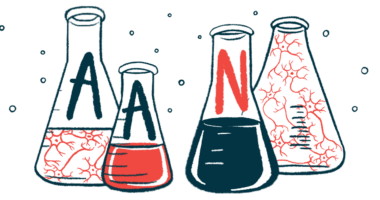Equfina Launched in S. Korea as Add-on for ‘Off’ Periods

Eisai Korea has launched Equfina (safinamide) in South Korea as an add-on therapy to levodopa for people with Parkinson’s disease who are experiencing “off” episodes.
Equfina was approved in South Korea last year and this represents the medication’s first launch in Asia outside of Japan.
Marketed as Xadago in the U.S., Europe, and Australia, and as Onstryv in Canada, safinamide boosts the brain’s amount of available dopamine, a signaling molecule needed to coordinate movement that is progressively lost over the course of Parkinson’s.
Although levodopa, which the body converts into dopamine, is the gold standard for Parkinson’s therapy, patients’ response to it sometimes declines, resulting in periods of reappearing motor symptoms known as “off” periods.
Safinamide makes dopamine available by stopping the body from breaking down dopamine or from sequestering it inside cells, thereby preventing it from transmitting signals throughout the body.
Specifically, it inhibits the monoamine oxidase B enzyme involved in metabolizing (breaking down) dopamine, and stops ion channels that cross the cell membrane from transporting dopamine into the cell.
Safinamide also prevents cells from releasing excessive glutamate, another neurotransmitter. Excess glutamate signaling is associated with nerve cell loss, leading a number of pharmaceutical companies to pursue therapies that limit such signaling.
The results of the global Phase 3 SETTLE trial (NCT00627640) provided the grounds for Equfina’s South Korean marketing approval.
SETTLE evaluated once-daily oral safinamide’s safety and efficacy over 24 weeks, as an add-on therapy with levodopa. It was given to 549 Parkinson’s patients with motor fluctuations, who were on stable regimens of levodopa and either benserazide or Lodosyn (carbidopa).
Results showed that the addition of safinamide increased the average length of “on” periods — when patients experience no uncontrollable, involuntary movements known as dyskinesia — by almost an hour, compared to placebo.
Adverse side effects occurred in slightly more than a quarter of the placebo and treatment groups (27.6% vs 28.5%, respectively). The most frequently reported reactions included dyskinesia, nausea, and drowsiness.
Safinamide was developed by Newron Pharmaceuticals, which later granted Meiji Seika Pharma exclusive manufacturing and commercialization rights in Asia. Meiji later entered into a licensing agreement with Eisai, in which Eisai obtained exclusive rights to develop and market safinamide throughout much of Asia. Eisai Korea is Eisai’s South Korean subsidiary.
Eisai stated in a press release that it is applying for new drug approval of safinamide in Taiwan and also intends to submit applications in other countries.





